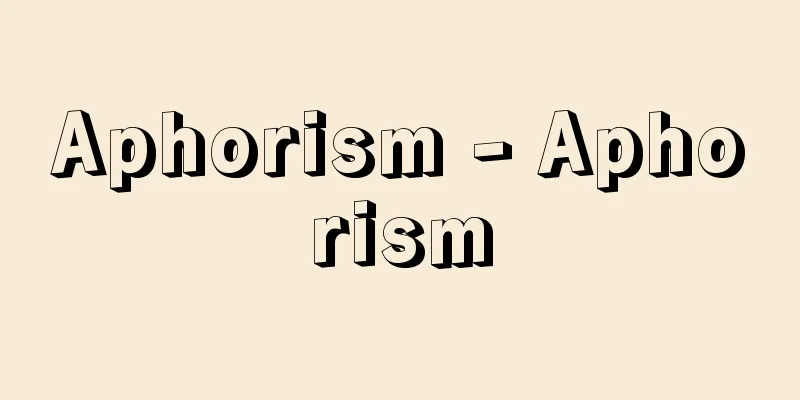Matthias Knutzen

|
1646‐? A 17th century German atheist. He lost his parents at a young age and studied theology at the University of Königsberg, but was not allowed to enter the priesthood due to his free-thinking views, spending his time as a private tutor. In September 1674, he published three documents criticizing religion in Jena, in which he denied the existence of God, an otherworldly world, and the immortality of the soul, and declared the clergy and the church to be useless. This caused a great stir, but he left Jena to avoid arrest, and has not been heard from since. [Conscience, Power] Source: Heibonsha World Encyclopedia, 2nd Edition Information |
|
1646‐? 17世紀ドイツの無神論者。幼少にして両親を失い,ケーニヒスベルク大学で神学を学ぶが,自由思想のため聖職につけず,家庭教師などで世を送った。1674年9月,彼はイェーナにおいて宗教批判の三つの文書を公表し,そのなかで神の存在,彼岸的世界,霊魂の不死を否定し,聖職者と教会を無用の長物と断じた。反響は大きかったが,彼は逮捕を避けてイェーナを去り,その後消息不明となる。【良知 力】 出典 株式会社平凡社世界大百科事典 第2版について 情報 |
Recommend
Seasonally adjusted - Kisetsuchoseiichi
…Seasonal patterns are often considered exogenous...
Sawata [town] - Sawata
An old town facing Mano Bay in the central part of...
Tomomitsu Yuki
A military commander in the early Kamakura period...
Pyroxene
This is a group of important rock-forming mineral...
Zubatov, SV (English spelling) ZubatovSV
...Policy on labor issues in Russia in the early ...
Ngai
...The institution disappeared during the colonia...
Ekuru - Ekuru
⇒Ecru Source: About Shogakukan Digital Daijisen In...
Ainame Festival
In ancient times, this was a festival on the day ...
Kiraigo - Kiraigo
A folk art form. Bon Kyogen is handed down in Kos...
Florian Witold Znaniecki
American sociologist. Born in Poland. Studied at ...
《Gizankoukaku》
...In the Edo period, a new trend arose of tellin...
Interferogram
…Since δ is expressed as 2π⊿/λ using the optical ...
Ogiri - Ogiri
The name of a performance that is added independen...
Pangi (English spelling)
A deciduous tall tree of the family Combriaceae, f...
Chikuhi Line
The name of the Kyushu Railway Company's trac...




![Kanzanji [Hot Springs] - Kanzanji](/upload/images/67cb491a82db7.webp)

![Vermont [State] - Vermont](/upload/images/67cc8e337d328.webp)


